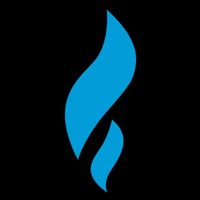So, you want to know what a landing page is?
Well you’re in luck because today we’re answering that question as well as revealing a few tips and tricks that helped us get a 43% conversion rate on this landing page.
The best part?
You don’t need to be a marketing guru to figure this out.
And with the quick information provided in this post, you can easily implement these tips to create a landing page that converts again and again.
Let’s jump right into it!
Takeaways
- There are two types of landing pages (lead generation and click-through) and you use each one depending on your goal.
- To help aid in this goal, remove the navigation from your landing page to help visitors stay focused and avoid clicking elsewhere.
- There are people who land on your landing page and will be ready to move forward with your CTA, so you want to give them that option.
What is a Landing Page?
It refers to a destination page made for a specific audience with a specific goal.
Think “one page, one purpose”.

This page should have a clear call-to-action eliminating any opportunity for your audience to divert away from that call-to-action.
And because of the laser focus of a landing page, successful pages lead to:
- higher conversion rates
- increased engagement
- better quality leads
- better focus on your messaging
They take the distractions away from all other options that don’t directly point towards your conversion goal.
Are these pages necessary if you have a home page? Yes.
Should you use them even if you already have a good website design? Absolutely!
Should you use these pages even if you don’t have a high volume of website traffic? Most definitely!
Know that there are two types and you use each one depending on your goal.
Types of Landing Pages
1. Lead Generation Landing Page
The goal of this page is to collect leads for your business.
Now, you can accomplish a lead generation landing page in two ways depending on the audience you are targeting and where they are in the buying process.
If someone is in the research phase of the buying process, you should offer some type of downloadable content that is educational in nature and provides value on your landing page.
These downloadable content include eBooks, checklists, and webinars work very well for our clients.
Here’s an example of a lead generation landing page for someone in the research phase:

Providing value creates a win-win scenario for you and the potential customer as they get answers to their questions and you build brand awareness, recall, and contact info.
This is typically in the form of an email.
If your audience is in the purchase phase of the buying process, you should be directly on your page.
This can be done by identifying the problem, establishing your company as the solution, and asking for contact information through your call-to-action.
This also creates a win-win scenario for you and the potential customer as they find a solution that can help them, and you get the opportunity to gain a customer once you follow up.
Here’s an example of a lead generation landing page for someone in the purchase phase:

2. Click-Through Landing Page
This type is popular among ecommerce, course, and SaaS companies as they forgot trying to capture a lead and call-to-action buttons take you right into the checkout flow to purchase.
Characteristics of a High-Converting Landing Page

Now that we know the two types of landing pages, let’s discuss the common characteristics of a high converting one:
- Navigational menus are removed.
As mentioned previously, high-converting landing pages focus on one goal, your call-to-action.
To help aid in this goal, remove the navigation from your landing page to help visitors stay focused and avoid clicking elsewhere.
- There are call-to-action buttons above the fold.
Above the fold refers to the top part of a web page and so visible without scrolling down the page.
You can also place these CTAs at the bottom of the page.
Why?
There are people who land on your landing page and will be ready to move forward with your CTA. You want to give them that option.
The same is true for those who need more information and will scroll to the bottom of your page.
Place a CTA at the bottom of the page so those that make it there are able to take an action.
- The call-to-action button text is reflective of what will happen next or the end result of taking the action.
Think of your CTA button like a GPS.
Most people don’t travel along a road unless it takes them to a destination they are aware of.
Use your CTA button to clearly state what will happen as a result of clicking it. Common CTA button text includes:
- Sign Up

- Join Now
- Schedule A Call
…others that have more guidance than a simple “Click Here”
Final Takeaways
There you have it!
A clear understanding of what is a landing page, the types of pages you can utilize, and characteristics of a high-converting landing page.
Having one for your business will surely help propel your sales, awareness, and conversions, especially if you follow these tips and tricks that we shared.
But if you need help in crafting a landing page that will surely give you the results you wanted, we got you covered!
Additionally, we also offer a variety of marketing solutions that you can utilize to grow your business.
Work with our amazing team. Contact us today and we would love to hear from you!




